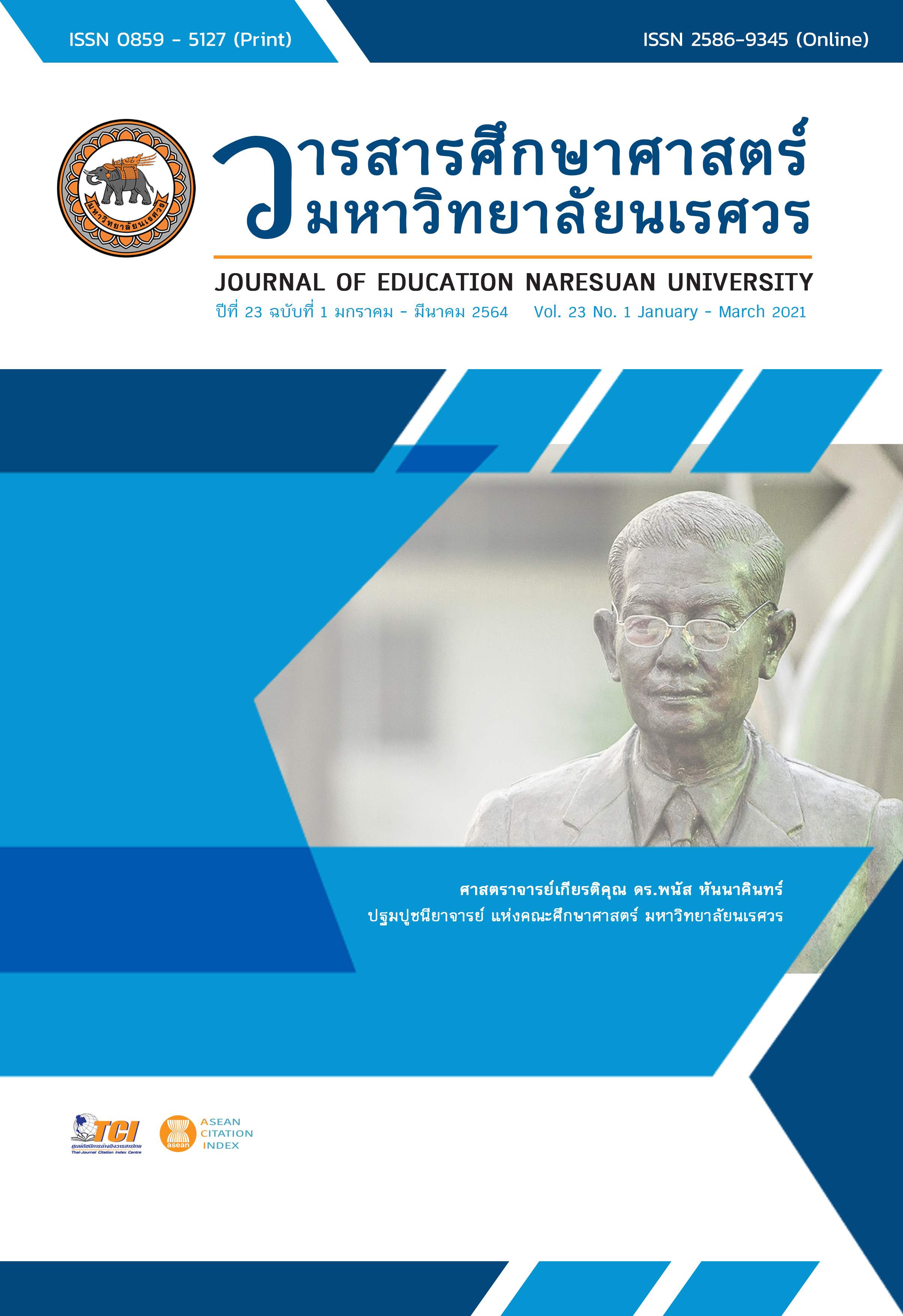FACEBOOK: AN ALTERNATIVE LEARNING PLATFORM FOR ONLINE ENGLISH AS A FOREIGN LANGUAGE INSTRUCTION IN THE TIME OF COVID-19
Main Article Content
Abstract
The COVID-19 situation has pushed schools and universities to go online. This urgent situation requires immediate action. Therefore, teachers are demanded to make quick adjustments from face-to-face to remote teaching. At this time, a simple and easy way is preferable. Facebook is one of them. Facebook can act both as a Learning Management System (LMS) and a teleconferencing tool. As LMS, it can facilitate both asynchronous and synchronous communication and interaction as well as store various files related to the lessons. As a teleconferencing tool, it can facilitate a free, private, and successful real-time video meeting with students. Most importantly, as a popular social media application, many people are familiar with how to use it, thus making the transition easier for teachers and students. This article discusses and gives examples of how Facebook can benefit online EFL instruction, particularly in the time of COVID-19.
Article Details
The owner of the article does not copy or violate any of its copyright. If any copyright infringement occurs or prosecution, in any case, the Editorial Board is not involved in all the rights to the owner of the article to be performed.
References
Akbari, E., Naderi, A., Simons, R. J., & Pilot, A. (2016). Student engagement and foreign language learning through online social networks. Asian-Pacific Journal of Second and Foreign Language Education, 1(1), 1-22.
Allen, M. (2012). An education in Facebook. Digital culture and education, 4(3), 213-225.
Arabacioglu, T., & Akar-Vural, R. (2014). Using Facebook as a LMS? Turkish Online Journal of Educational Technology-TOJET, 13(2), 202-214.
Amornchewin, R. (2018). The development of SQL language skills in data definition and data manipulation languages using exercises with Quizizz for students' learning engagement. Indonesian Journal of Informatics Education, 2(2), 85-90.
Anggoro, K. J. (2020). Pear deck. RELC Journal, https://doi.org/10.1177/0033688220936735
Ashraf, H., Fatemi, M. A., & Naderi, S. (2013). The effect of active learning instruction on the intermediate Iranian EFL learners’ listening comprehension ability. International Journal of Linguistics, 5(5), 225-242.
Black, E. W., Beck, D., Dawson, K., Jinks, S., & DiPietro, M. (2007). Considering implementation and use in the adoption of an LMS in online and blended learning environments. Tech Trends, 51(2), 35-53.
Fisher, D., & Frey, N. (2012). Making Time for Feedback. Educational leadership, 70(1), 42-47.
Georgouli, K., Skalkidis, I., & Guerreiro, P. (2008). A framework for adopting LMS to introduce e-learning in a traditional course. Journal of Educational Technology & Society, 11(2), 227-240.
Gholami, V., Moghaddam, M. M., & Attaran, A. (2014). Towards an interactive EFL class: Using active learning strategies. The Clarion-International Multidisciplinary Journal, 3(2), 67-74.
Han, H. (2014). Transforming EFL classes from lecturing to cooperative learning. Journal of Language Teaching and Research, 5(4), 948.
Kabilan, M. K., Ahmad, N., & Abidin, M. J. Z. (2010). Facebook: An online environment for learning of English in institutions of higher education?. The Internet and higher education, 13(4), 179-187.
Kent, M., & Leaver, T. (2014). An education in Facebook?: Higher education and the world's largest social network. Routledge.
Koohang, A., Paliszkiewicz, J., Klein, D., & Horn Nord, J. (2016). The importance of active learning elements in the design of online courses. Online Journal of Applied Knowledge Management (OJAKM), 4(2), 17-28.
Leighton, J. P. (2019). Students’ interpretation of formative assessment feedback: Three claims for why we know so little about something so important. Journal of Educational Measurement, 56(4), 793-814.
Licorish, S. A., George, J. L., Owen, H. E., & Daniel, B. (2017). Go Kahoot! enriching classroom engagement, motivation and learning experience with games. International Conference on Computers in Education, 755-764.
Mala, D. (2020). COVID-19 fear pushes classes online. Bangkok Post. Retrieved from https://www.bangkokpost.com/thailand/general/1876594/covid-19-fear-pushes-classes-online
Meishar-Tal, H., Kurtz, G., & Pieterse, E. (2012). Facebook groups as LMS: A case study. International Review of Research in Open and Distributed Learning, 13(4), 33-48.
Plump, C. M., & Larosa, J. (2017). Using Kahoot! in the classroom to create engagement and active learning: A game-based technology solution for eLearning novices. Management Teaching Review, 2(2), 151-158.
Towner, T. L., & Munoz, C. L. (2011). Facebook and education: a classroom connection? In Educating educators with social media. Emerald Group Publishing Limited.
Wang, Q., Woo, H. L., Quek, C. L., Yang, Y., & Liu, M. (2012). Using the Facebook group as a learning management system: An exploratory study. British journal of educational technology, 43(3), 428-438.
Wanner, T., & Palmer, E. (2018). Formative self-and peer assessment for improved student learning: the crucial factors of design, teacher participation and feedback. Assessment & Evaluation in Higher Education, 43(7), 1032-1047.


